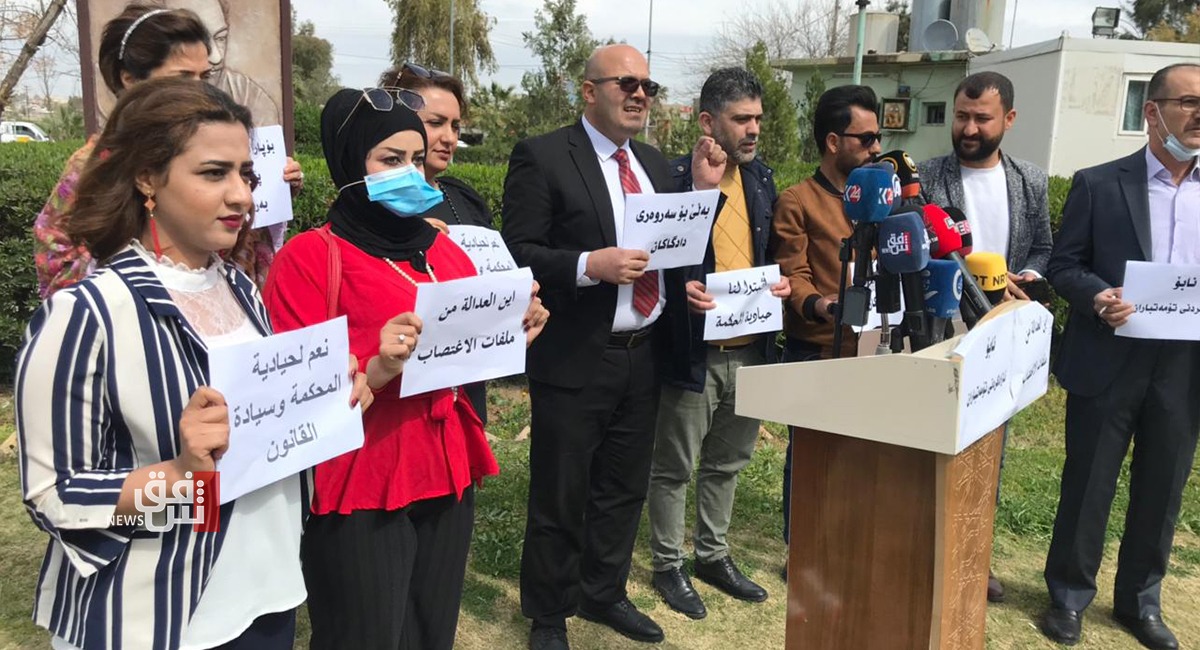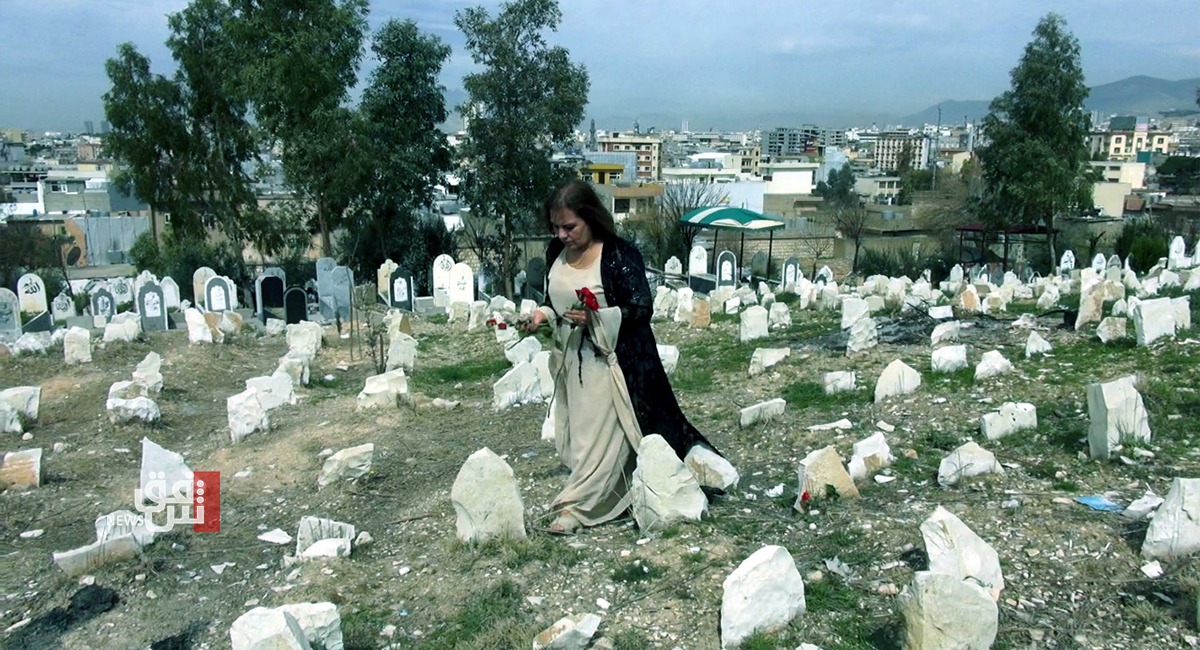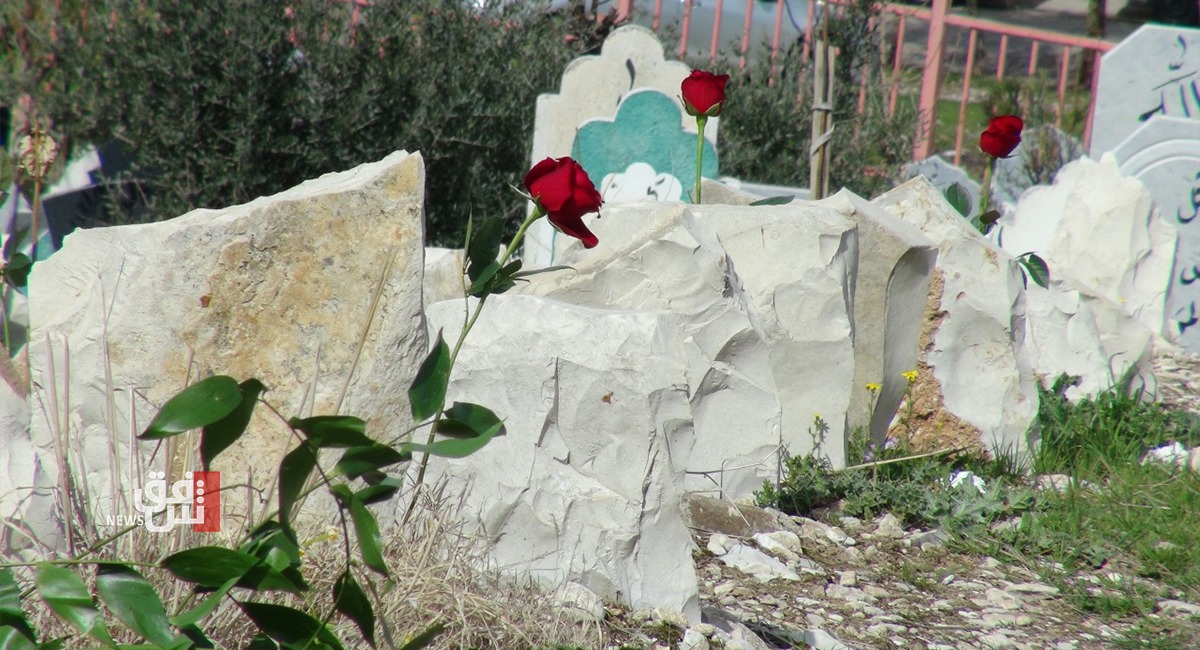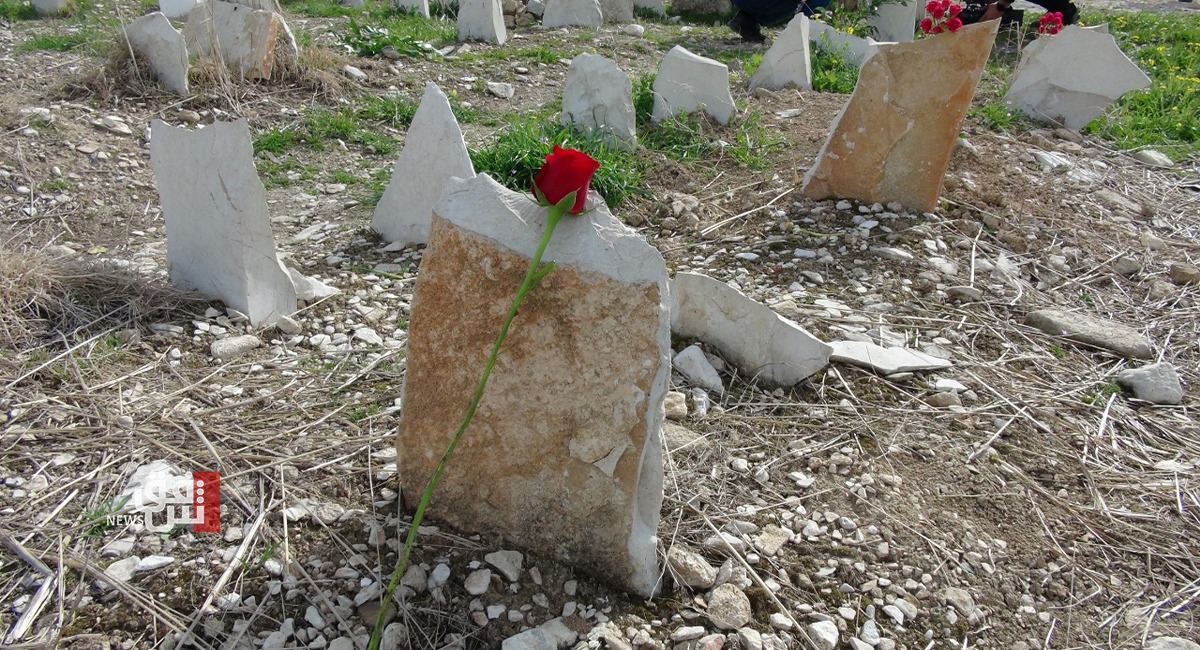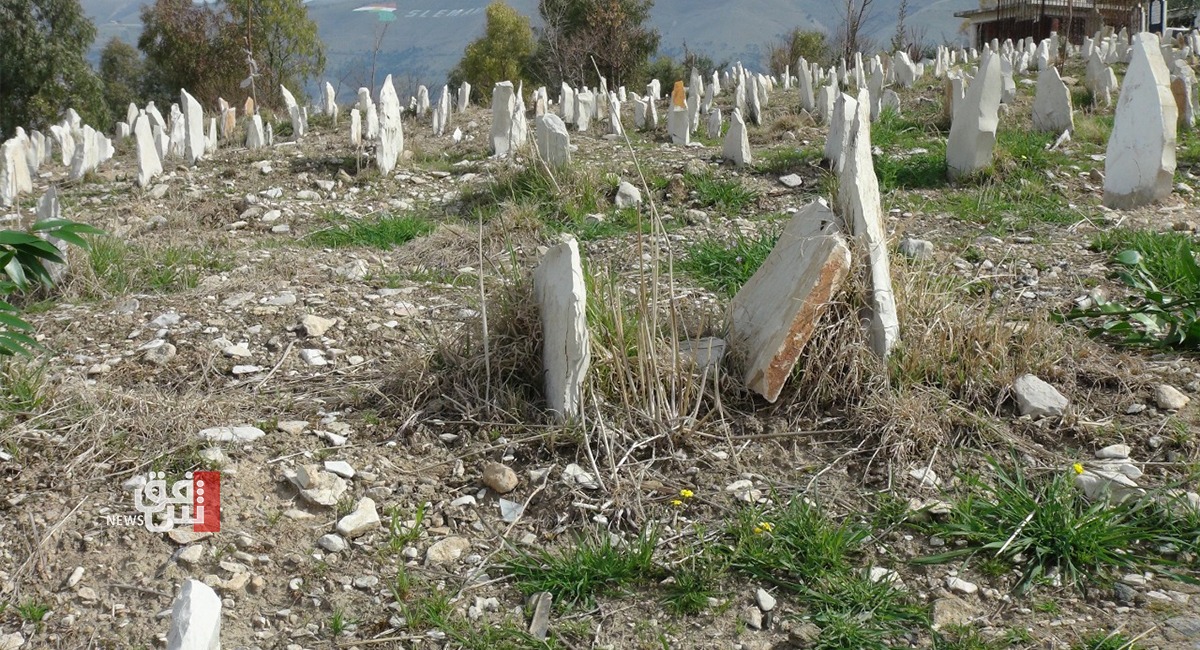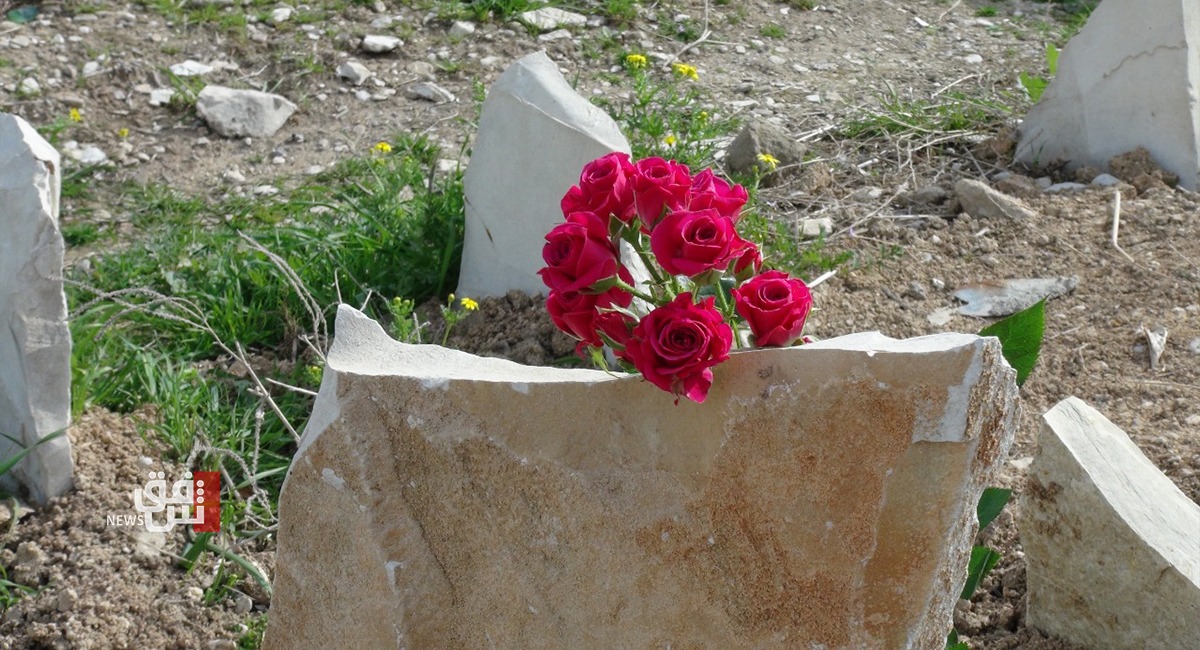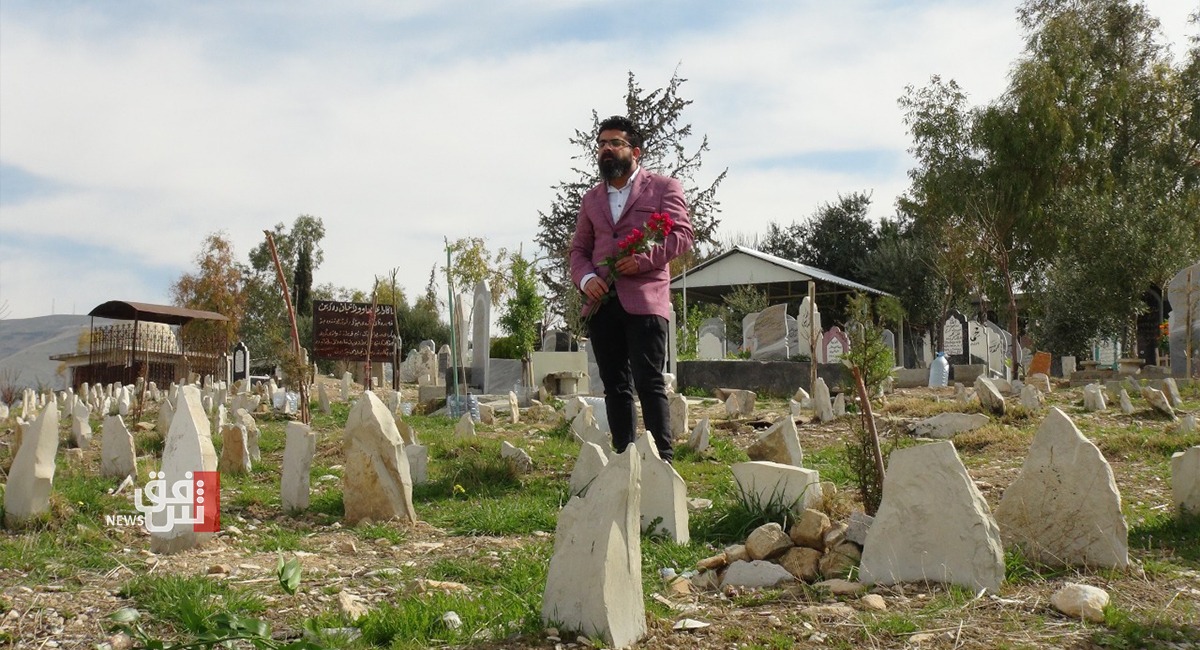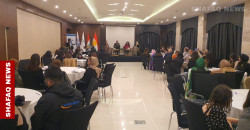On International Women’s Day, Iraqi Women suffer of violence
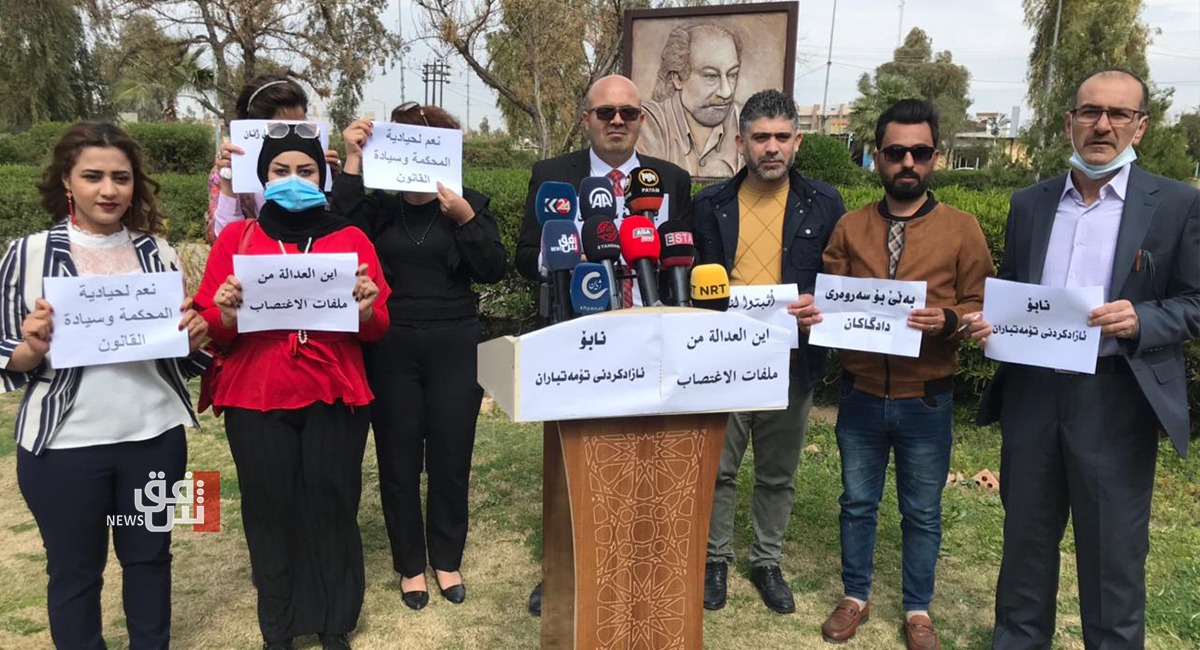
Shafaq News / Iraqi Activists and organizations called on Monday for protecting women against abuse and violence.
Kazal Abdel Qader, a member of the "No to killing women" project told Shafaq News Agency while she put red flowers on graves of women in Al-Sulaymaniyah, "I congratulate women on their International Day, I am here in front of these untitled graves of women who were sentenced to death because of the wrong mentality and in the name of customs and traditions without legal trials."
Abdul Qadir added; "From here I say, stop killing women, have mercy on whoever is a sister, mother or wife."
She continued, “there are 500-600 women who were killed and buried in cemeteries without knowing their names or addresses, which is an evidence of the status of women in the city of Al-Sulaymaniyah and other governorates in the region, despite the development and openness, there is still an honor killing."
For its part, human rights organizations in Kirkuk warned on Monday, of the escalated rate of domestic violence cases.
Representatives of the organizations held a press conference expressing their rejection to the Court of Cassation decision to release the main suspect in the case of sexual assault against a woman in the Governorate.
They said "in the first quarter of this year (2021), violence, murder and threats against women have significantly increased," calling on the government “to raise awareness about domestic and sexual violence,” and stressing the need to enact laws to address violence against women.
In the same context, officials in Diyala confirmed that women are still deprived of their legitimate rights.
Unofficial statistics in Diyala indicate that there are about 15,000 women who have lost their husbands, mostly due to their deaths in violent incidents without taking any help to secure living conditions.
The humanitarian organizations in Diyala confirmed the Data saying the government did not support women in the Governorates.
"Women in Diyala are suffering of wars, extremism and forced displacement, and despite their great humanitarian role, they face clear governmental marginalization." They said.
For his part, the Director of the Human Rights Office in Diyala, Salah Mahdi Al-Majma'i, said that the suffering of women in the governorate is mainly due to the escalation of domestic violence and the denial of accessing to school.
He emphasized that "Diyala includes tens of thousands of widows, most of them due to terrorism,” adding that “the high poverty rates forced some women to work in not suitable jobs."
Al-Majma'i added, "The tribal view and the traditions in some areas of Diyala, especially villages and rural areas, deprived a large number of women from education…. for the lack of school buildings to receive students."
Over the past years, Iraq had adopted several policies for the advancement of women’s affairs, such as a National Strategy to Combat Violence against Women, a Poverty Reduction Strategy, a National Plan for the Implementation of the Universal Periodic Review Recommendations, and a National Strategy for Reproductive Health and Maternal, Legal Guardian, Child and Adolescent Health 2018-2020.
These policies and strategies had contributed to, and continued to enhance the status of women in society towards the full enjoyment of their rights, and to enable them to exercise their important role in public and political life.
According to the United Nations, To ensure the protection and enhancement of women's rights in the region, there were several specialized institutions and departments acting in the field, including the followings: more than 150 civil society organizations for women in the Kurdistan region, five shelters for women exposed to violence, the High Council for Women’s Affairs and the General Directorate for Combatting Violence against Women and the Family in the Ministry of Interior, which consisted of six directorates and 28 offices in districts and sub-districts, in addition to its offices in refugee and internally displaced people camps.
However, in many violent cases, Iraqi women are still subject to family and tribal laws.
